Top Ingredients for Effective Private Label Teeth Whitening
- Top Ingredients for Effective Private Label Teeth Whitening
- Why ingredient selection matters for private label teeth whitening
- Peroxide-based whitening agents: Hydrogen peroxide and Carbamide peroxide
- PAP (phthalimidoperoxycaproic acid): A peroxide-free oxidizer for competitive private label teeth whitening
- Non-oxidative systems and enzymes: Papain, bromelain, and stain-lifting agents
- Abrasives and polishing agents: Hydrated silica, calcium carbonate, and enamel safety
- Desensitizing and remineralizing agents: Potassium nitrate, fluoride, nano-hydroxyapatite, and CPP-ACP
- Stabilizers, solvents, and flavoring: Improving shelf life and user experience for private label teeth whitening
- Delivery format matters: Matching ingredients to strips, pens, gels and kits
- Comparative ingredient reference table
- Regulatory and safety considerations for private label teeth whitening
- Why choose Double White for private label teeth whitening development
- Formulation and commercial tips for successful private label teeth whitening
- Frequently Asked Questions (FAQ) — private label teeth whitening
- Q: What ingredient is best for fast results?
- Q: Can I market a peroxide-free private label whitening product?
- Q: How can I minimize customer sensitivity complaints?
- Q: What regulatory checks are essential before launching?
- Q: Does Double White provide samples and private label services?
- Contact and next steps — request samples or product consultation
- References and sources
Top Ingredients for Effective Private Label Teeth Whitening
Why ingredient selection matters for private label teeth whitening
Choosing the right active and supportive ingredients is the single most important decision when developing private label teeth whitening products. Whether you're launching whitening strips, gels, pens, or full kits, ingredient selection determines effectiveness, safety, user experience (sensitivity, taste, foam), shelf life, regulatory compliance, and ly consumer satisfaction and brand reputation. For private label teeth whitening brands, balancing efficacy and tolerability is critical: powerful bleaching must be paired with ingredients that minimize sensitivity and protect enamel.
Peroxide-based whitening agents: Hydrogen peroxide and Carbamide peroxide
Peroxide-based oxidizers remain the gold standard for stain removal in both professional and over-the-counter whitening systems. They work by releasing reactive oxygen species that break apart chromogenic (color-causing) molecules within the tooth enamel and dentin.
- Hydrogen peroxide (H2O2) — Rapid-acting oxidizer commonly used in strips, gels, and in-office systems. Typical OTC concentrations range from about 3% to 10% for consumer-facing products; professional systems may use higher concentrations under supervision. Benefits: faster visible whitening, well-researched efficacy. Considerations: higher potential for transient tooth and gum sensitivity; formulation must control pH and stabilizers to reduce irritation.
- Carbamide peroxide (CP) — A stable compound that decomposes into hydrogen peroxide and urea. Common consumer concentrations are 10%–35% CP (10% CP ≈ 3.3% H2O2). Benefits: slower, sustained release which can be gentler on sensitivity and ideal for tray-based or overnight applications. Considerations: bulkier formulations may affect texture and product stability.
For private label teeth whitening, selecting H2O2 vs. CP depends on delivery format, desired speed of results, and the target customer. For rapid-results strips and pens, H2O2 is common. For overnight kits and trays, higher-carbamide formulations can be effective and less irritating.
PAP (phthalimidoperoxycaproic acid): A peroxide-free oxidizer for competitive private label teeth whitening
PAP (also written as PAPP or phthalimidoperoxycaproic acid) is an alternative oxidizing agent gaining traction in whitening formulations. It offers bleaching action without releasing free hydrogen peroxide, which can be appealing for brands seeking a lower-sensitivity profile or to differentiate products under the private label teeth whitening umbrella.
Advantages of PAP:
- Reduced peroxide-related irritation for some users.
- Effective on both intrinsic and extrinsic stains in published trials.
- Compatibility with certain stabilizers that preserve aesthetics and flavor.
Limitations: PAP formulations need careful stabilization (pH and chelating agents) and regulatory evaluation in certain markets. For private label teeth whitening, PAP offers a strong marketing angle (peroxide-free bleaching) but requires lab support to ensure consistent performance and shelf stability.
Non-oxidative systems and enzymes: Papain, bromelain, and stain-lifting agents
Non-oxidative stain removal uses enzymes and surfactant systems to degrade or loosen stain molecules on the tooth surface. Enzymes such as papain (from papaya) and bromelain (from pineapple) act on proteinaceous pellicle layers and can improve stain removal when combined with other agents.
These systems are often used in combination with low levels of oxidizers or abrasives to enhance overall whitening while minimizing sensitivity. For private label teeth whitening brands targeting customers who prefer natural or low-irritation products, enzymatic systems can be a complementary ingredient strategy.
Abrasives and polishing agents: Hydrated silica, calcium carbonate, and enamel safety
Physical stain removal is an important component of many whitening toothpastes and cleaning steps in kits. Common polishing agents include hydrated silica and calcium carbonate. While abrasives help remove surface stains effectively, they must be chosen and formulated to balance cleaning power and enamel safety.
Key considerations for private label teeth whitening products that include abrasives:
- Use abrasives with controlled Relative Dentin Abrasivity (RDA) that match product intent (daily toothpaste vs. whitening paste).
- Combine abrasives with remineralizing agents (fluoride, calcium phosphate) to protect enamel integrity.
- Abrasives are less effective on intrinsic stains than oxidizers; use them as part of a multi-mechanism formula.
Desensitizing and remineralizing agents: Potassium nitrate, fluoride, nano-hydroxyapatite, and CPP-ACP
Sensitivity is the most common side effect reported with whitening treatments. Incorporating desensitizing and remineralizing agents into private label teeth whitening formulations improves tolerability and brand reputation.
- Potassium nitrate — Works by calming nerve excitability and reducing sensitivity. Useful in aftercare gels and toothpaste included in kits.
- Fluoride — Promotes remineralization and reduces demineralization risk. Often included in gels or post-whitening rinses.
- Nano-hydroxyapatite (n-HAp) — A biomimetic mineral that helps repair micro-surface enamel defects and reduce sensitivity while improving luster.
- CPP-ACP (casein phosphopeptide–amorphous calcium phosphate) — Supplies bioavailable calcium and phosphate for enamel repair; good in post-whitening formulations.
For private label teeth whitening, offering a post-whitening desensitizing gel or including desensitizers directly in formulations helps reduce returns and negative reviews.
Stabilizers, solvents, and flavoring: Improving shelf life and user experience for private label teeth whitening
Active ingredients need support ingredients to be commercially viable. Stabilizers (e.g., carbomers, EDTA), solvents (glycerin, propylene glycol), and pH buffers preserve potency and comfort. Flavoring and sweeteners (mint, xylitol) significantly impact repeat purchase behavior. During private label teeth whitening development, prioritize stabilizers that maintain peroxide or PAP stability and choose flavors with broad consumer appeal.
Delivery format matters: Matching ingredients to strips, pens, gels and kits
Ingredient choices must align with the delivery format:
- Whitening strips — Thin-film carriers need low-viscosity peroxide gels, appropriate viscosifiers, and adhesives that ensure contact with enamel without gum irritation. Hydrogen peroxide is common.
- Whitening pens — Require stable, low-viscosity gels that apply exactly where needed; often lower peroxide concentrations for rapid, spot treatment.
- Whitening gels and trays — Can accommodate higher-carbamide peroxide concentrations and supportive desensitizers; trays allow longer contact time.
- Complete kits — Usually combine a faster-acting product (strips or lamp-accelerated gel) with desensitizing post-care products and maintenance toothpaste containing fluoride or n-HAp.
For private label teeth whitening manufacturers, testing different ingredient-delivery combinations in consumer panels is essential to balance speed of whitening with sensitivity and compliance.
Comparative ingredient reference table
The table below summarizes core whitening ingredient categories, typical concentration ranges in consumer products, primary mechanisms, and safety notes. This table is intended for product developers considering private label teeth whitening formulations.
| Ingredient | Typical consumer concentration | Mechanism | Key safety/considerations |
|---|---|---|---|
| Hydrogen peroxide | ~3%–10% (OTC) | Oxidative cleavage of chromogens | Effective; transient sensitivity; needs pH control and stabilizers |
| Carbamide peroxide | ~10%–35% (yields H2O2) | Slow-release peroxide; sustained bleaching | Gentler release profile; formulation bulk/viscosity considerations |
| PAP (peroxyacid) | ~2%–6% (varies) | Oxidative bleaching without free H2O2 | Lower peroxide-like irritation for some users; stability-critical |
| Hydrated silica (abrasive) | Varies by product | Physical stain removal (polishing) | Effective on surface stains; must control abrasivity (RDA) |
| Potassium nitrate | ~5% in desensitizing products | Reduces nerve sensitivity | Well-tolerated; often paired with fluoride or n-HAp |
| Nano-hydroxyapatite / CPP-ACP | Varies | Remineralization, reduce sensitivity | Supports enamel recovery and aesthetic surface repair |
Sources for typical concentrations and mechanisms are listed at the end of this article.
Regulatory and safety considerations for private label teeth whitening
Before launching white-labeled products, evaluate the regulatory landscape in your target markets. Hydrogen peroxide and high-concentration carbamide peroxide are regulated differently across jurisdictions. Requirements typically cover labeling, maximum allowable concentrations, safety testing, and claims substantiation.
Steps to take:
- Confirm maximum allowed active concentrations for each market.
- Conduct stability and microbial challenge tests to demonstrate shelf life.
- Perform compatibility testing for packaging materials (peroxides can degrade certain plastics).
- Include clear user instructions, contraindications, and safety warnings.
Partnering with an experienced private label manufacturer can reduce regulatory risk by leveraging their existing documentation and compliance workflows.
Why choose Double White for private label teeth whitening development
Double White is a professional organization that specializes in the research of chronology and the manufacture and development of oral care products. It has a strong development capacity in biotechnology and integrates scientific research, production, strategic planning and brand management. The oral care series has been produced carefully under rigorous scientific research and strict control. Double White is the No. 1 teeth whitening kit supplier in China, providing free samples and customized packaging. It mainly produces teeth whitening products, including teeth whitening strips, teeth whitening gels, teeth whitening pens, etc., and provides customization of teeth whitening products and packaging. Our vision is to become the world's leading teeth whitening strips manufacturer.
How Double White's capabilities support private label teeth whitening brands:
- R&D and biotech strength: Advanced formulation labs experienced with H2O2, CP, PAP and support ingredients ensure reliable performance and stability.
- Full manufacturing integration: In-house production reduces lead times and allows precise quality control during scale-up.
- Customization and packaging: Free samples, custom branding, and packaging solutions tailored to regulatory needs and market preferences.
- Product breadth: Ability to supply pens, strips, gels and complete kits — enabling consistent brand portfolios across channels.
Core product introductions:
- Teeth Whitening Pens — Targeted, on-the-go applicators formulated for rapid spot whitening. Benefits: precise dosing, minimized gum contact, suitable for H2O2-based low-viscosity gels.
- Teeth Whitening Strips — Thin-film adhesive strips with controlled peroxide release for at-home treatments. Benefits: strong consumer familiarity, reproducible application, scalable customization.
- Teeth Whitening Kits — Comprehensive systems combining whitening agents (gels or strips), desensitizing aftercare, and maintenance toothpaste. Benefits: improved customer outcomes and higher perceived value.
For private label teeth whitening brands wanting a partner with proven delivery formats and regulatory experience, Double White offers an attractive combination of scientific capability, manufacturing scale and market knowledge. Visit https://www.double-white.com/ to review products and request samples or custom packaging.
Formulation and commercial tips for successful private label teeth whitening
Practical tips to improve product success and reduce post-launch issues:
- Start with small sample batches and consumer panels to validate sensitivity and whitening claims before full production.
- Include a desensitizing/product-aftercare step in kits; it increases customer satisfaction and reduces returns.
- Use tamper-evident, light-blocking packaging for peroxide-based products to preserve stability.
- Ensure claim language is substantiated by internal testing or peer-reviewed literature—avoid overpromising “permanent” whitening.
- Offer clear usage instructions and realistic timelines for expected results (e.g., visible improvement in 3–14 days depending on product).
-
With a solid understanding of the most effective whitening ingredients, the next step is to analyze production costs, pricing structures, and potential profit margins. For a complete financial breakdown to guide your brand strategy, refer to Pricing, Costs, and Profit Margins for Private Label Whitening.
Frequently Asked Questions (FAQ) — private label teeth whitening
Q: What ingredient is best for fast results?
A: Hydrogen peroxide at appropriate concentrations delivers the fastest visible improvement. However, higher-speed results increase the risk of transient sensitivity, so supporting desensitizers and appropriate application times are recommended.
Q: Can I market a peroxide-free private label whitening product?
A: Yes — alternatives like PAP and enzymatic systems can provide meaningful whitening with lower perceived peroxide irritation. These require validation testing and careful stability controls.
Q: How can I minimize customer sensitivity complaints?
A: Incorporate desensitizing agents (potassium nitrate, n-HAp), include aftercare gels, recommend shorter initial use times, and provide clear usage guidance. Pre-market consumer trials help fine-tune tolerability.
Q: What regulatory checks are essential before launching?
A: Verify maximum active concentrations allowed in target markets, perform stability and safety testing, ensure proper labeling, and confirm packaging compatibility. Work with suppliers experienced in specific jurisdictional requirements.
Q: Does Double White provide samples and private label services?
A: Yes. Double White offers free samples, customized packaging, and full manufacture of whitening strips, gels, pens and kits. Their R&D, production and quality systems support rapid private label development.
Contact and next steps — request samples or product consultation
If you are planning to develop private label teeth whitening products and want a reliable production partner, contact Double White for samples, formulation consultation, and packaging customization. Visit https://www.double-white.com/ or reach out through their contact page to request free samples and discuss OEM/ODM solutions tailored to Double White goals.
References and sources
- American Dental Association (ADA) — Guidance on tooth whitening and peroxide safety.
- U.S. Food and Drug Administration (FDA) — Regulatory information on cosmetic vs. therapeutic claims and hydrogen peroxide limitations.
- Recent systematic reviews and clinical trials on whitening efficacy of hydrogen peroxide, carbamide peroxide, and PAP (peer-reviewed dental journals indexed on PubMed).
- Journal of Dentistry — publications on enamel abrasivity and RDA considerations for whitening pastes.
- Industry white papers on formulation stability of peroxide-based oral care products.
Note: When planning market claims and ingredient usage levels, consult the specific regulatory guidance in each target territory and conduct required safety/stability testing for your private label teeth whitening product.
Recommended for you
Should You Brush After Whitening Strips? | Double White
Discover the Best Dental Plans for Small Businesses in Japan | Double White
Best Dental Plans UK
Best Teeth Whitening Light - Double White
About Cooperation Process
How long does the cooperation process take?
The time for the cooperation process depends on your specific needs and order volume. Generally speaking, it may take weeks to months from demand confirmation to logistics delivery.
About Customized Services
How long is the product development cycle? Can it be faster?
It depends on market needs. Our engineers develop new products regularly based on feedback and research.
How long does customized service take?
The time for customized services depends on your specific needs and order volume. Generally speaking, we will provide you with customized solutions as soon as possible.
Teeth Whitening Powder
How do I use the teeth whitening powder?
Wet your toothbrush, dip it into the powder, and brush your teeth for 2 minutes. Rinse thoroughly with water.
About Logistics
Is your logistics and distribution service reliable?
Yes, we cooperate with a number of well-known logistics companies to ensure the timeliness and reliability of logistics and distribution services and provide you with a satisfactory distribution experience.

HP Teeth Whitening Alcohol-free Strips HPNA-01
Discover Double White’s HP Teeth Whitening Alcohol-free Strips HPNA-01, the best teeth whitening strips designed for a brighter smile without irritation. Alcohol-free formula ensures gentle yet effective whitening. Achieve professional results safely and easily at home with these top-rated teeth whitening strips.

HP Teeth Whitening Alcohol-free Strips HPNA-02
Double White’s HP Teeth Whitening Alcohol-free Strips HPNA-02 offer effective, gentle whitening without alcohol. These best whitening teeth strips deliver visible results, making them the good teeth whitening strips choice for a brighter smile. Try our whitening strips for teeth today!

Hydrogen Peroxide Residue Free Teeth Whitening Strips RFHP01
Double White Hydrogen Peroxide Residue Free Teeth Whitening Strips RFHP01 deliver the best quick teeth whitening results without residue. These best teeth whitening strips offer safe, effective brightening for a confident smile. Experience one of the best teeth whitening products today.

Hydrogen Peroxide Residue Free Teeth Whitening Strips RFHP02
100% tooth surface residue-free teeth strips represents the latest white teeth technology. This new product has strong adhesion on the teeth, but when peeled off, no gel-like substance remains on the tooth surface, leaving the teeth bright. Like new, no cleaning required.
Send us your inquiry
Reach out to us through the form below or via the contact information provided.
Our dedicated team is committed to providing prompt and personalized responses to all your queries.
Please fill out the fields above with your full name, email address, and comment.
Copyright © 2025 Double White All Rights Reserved. Designed by gooeyun

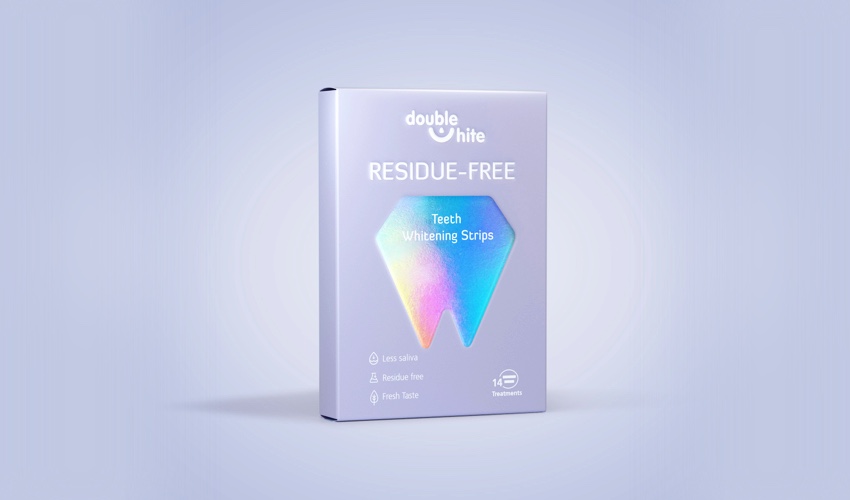
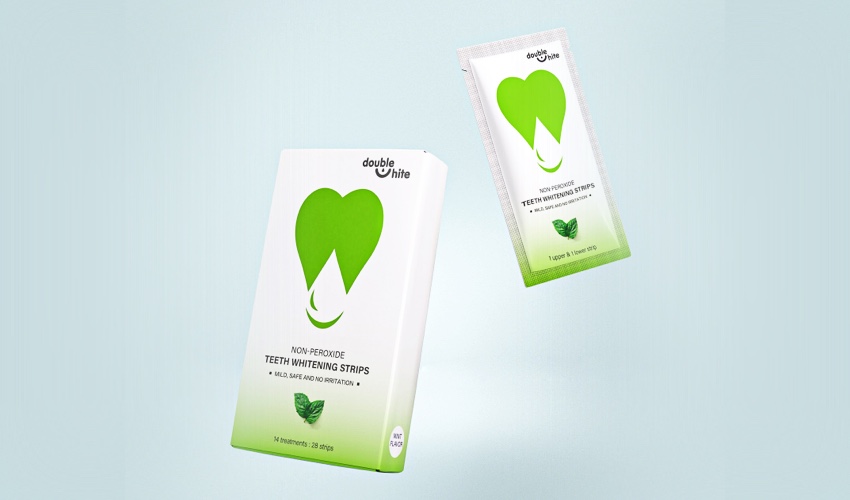
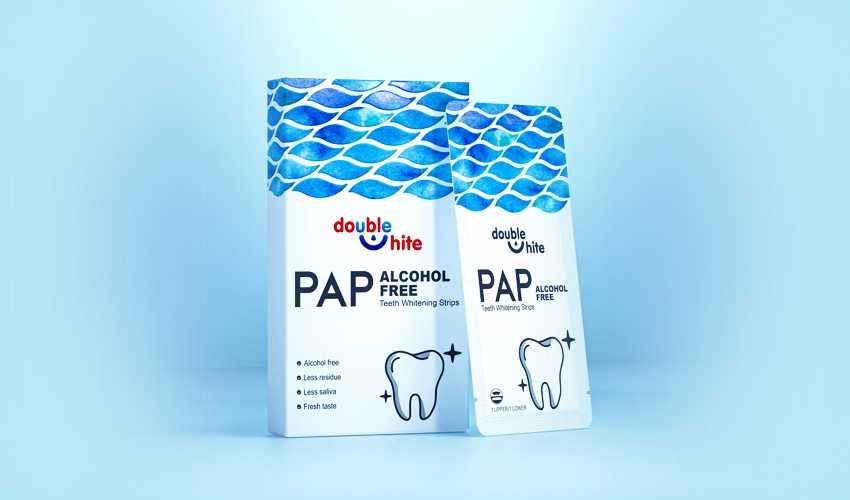
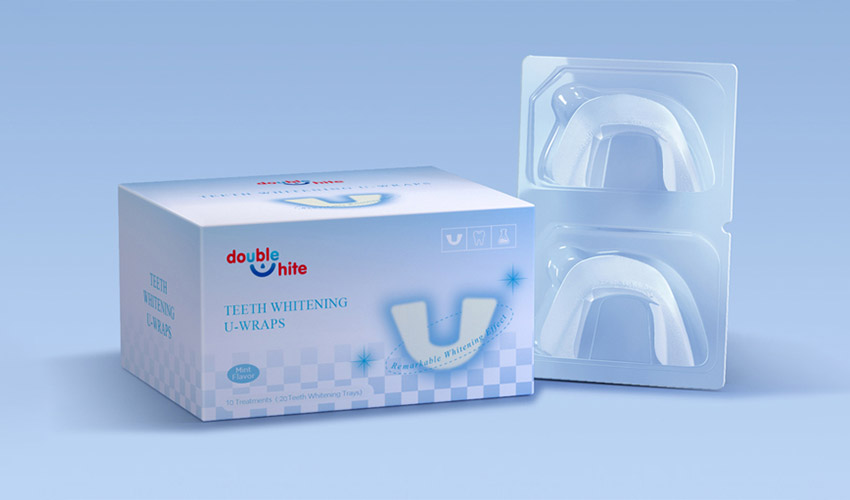
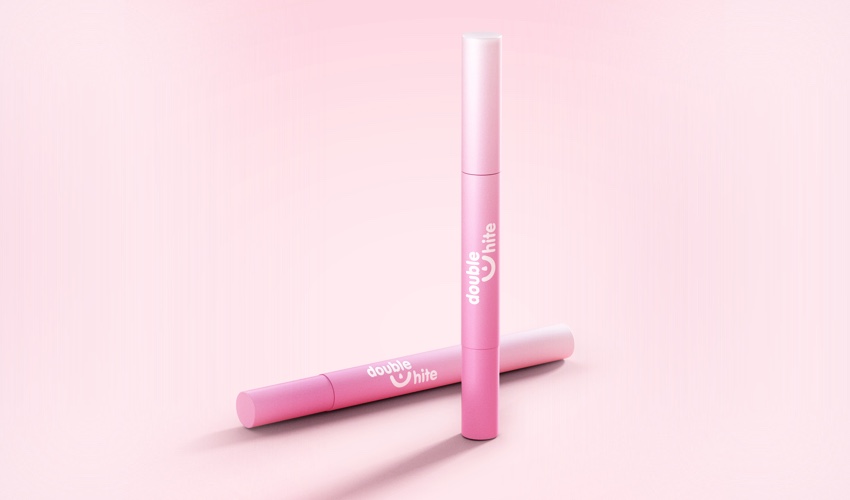
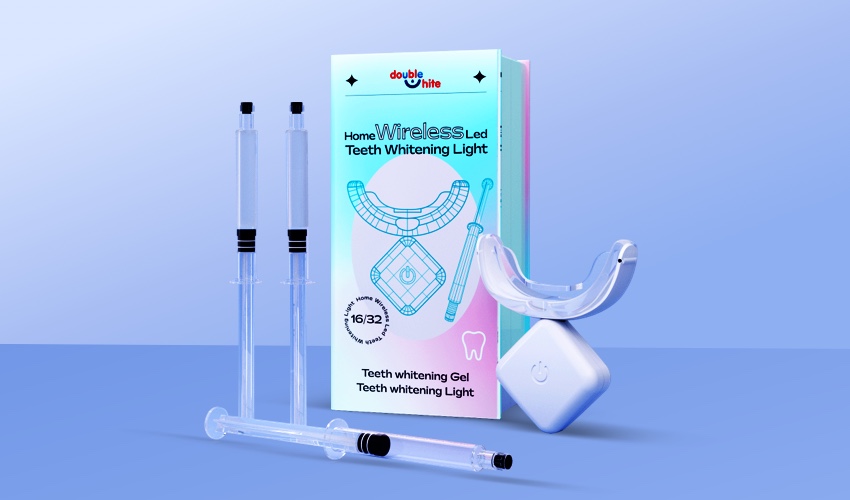
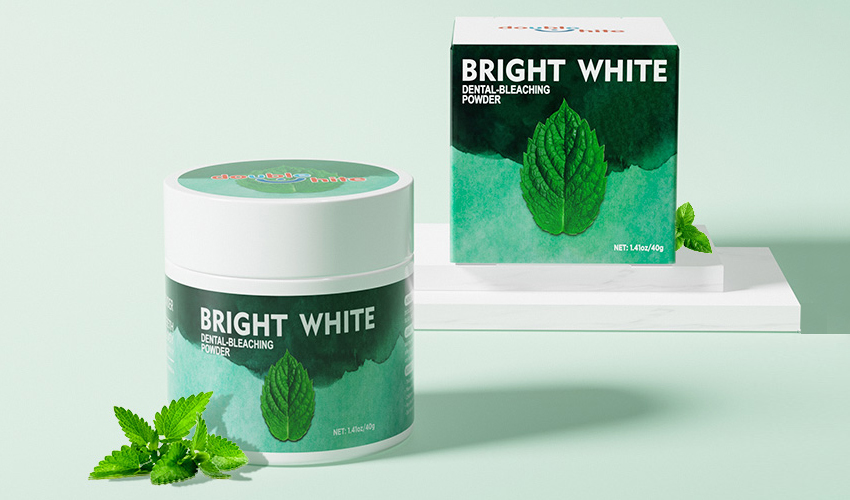






Whatsapp: +8615920313473
cndoublewhite
Doublewhite
doublewhitecn
cndoublewhite
cndoublewhite